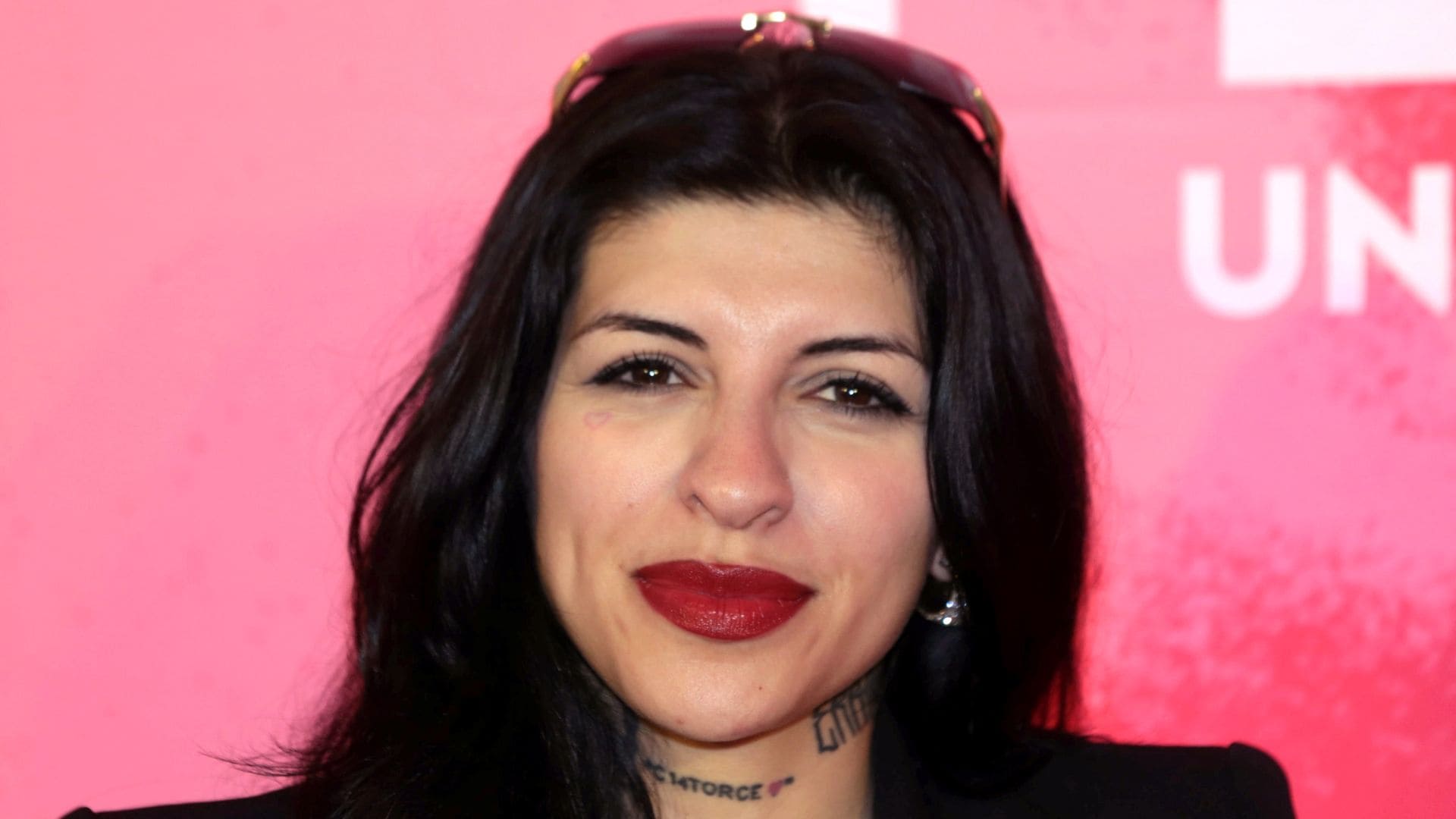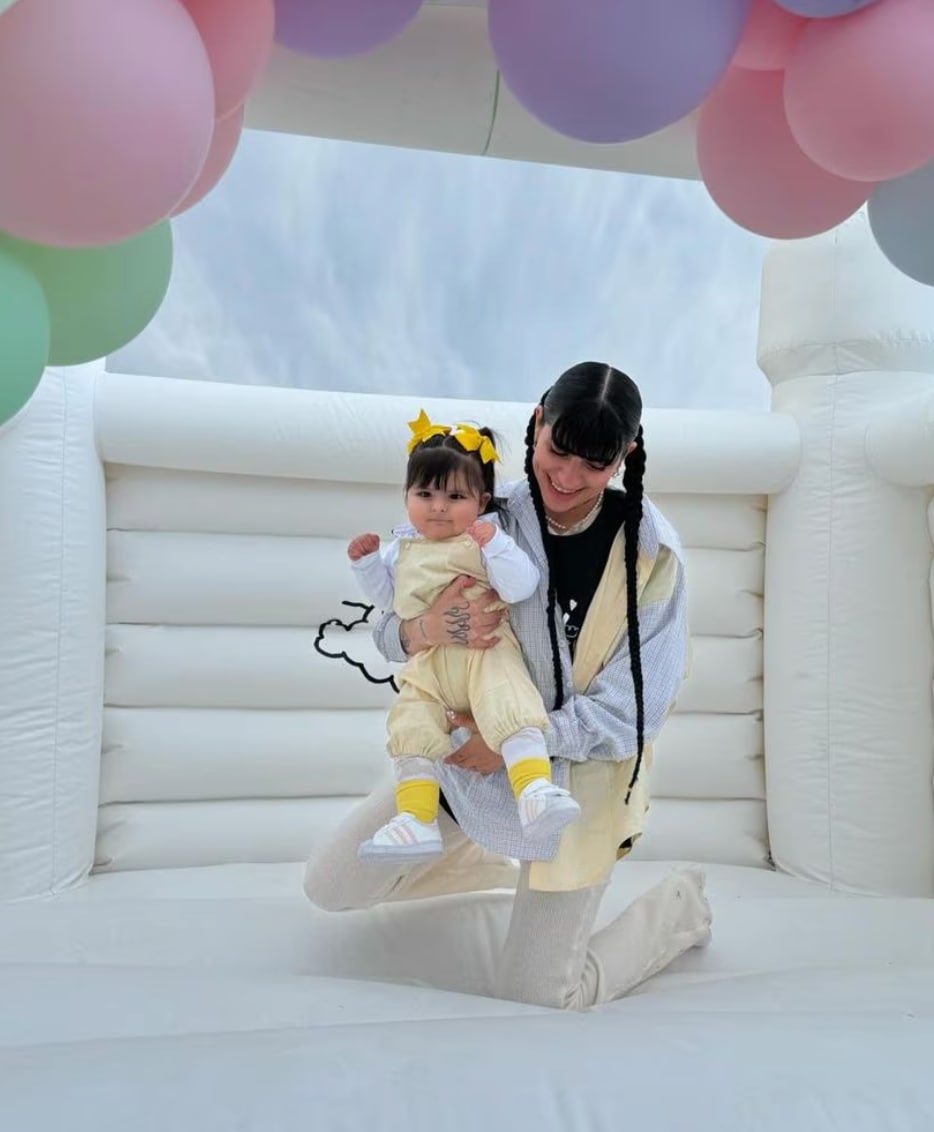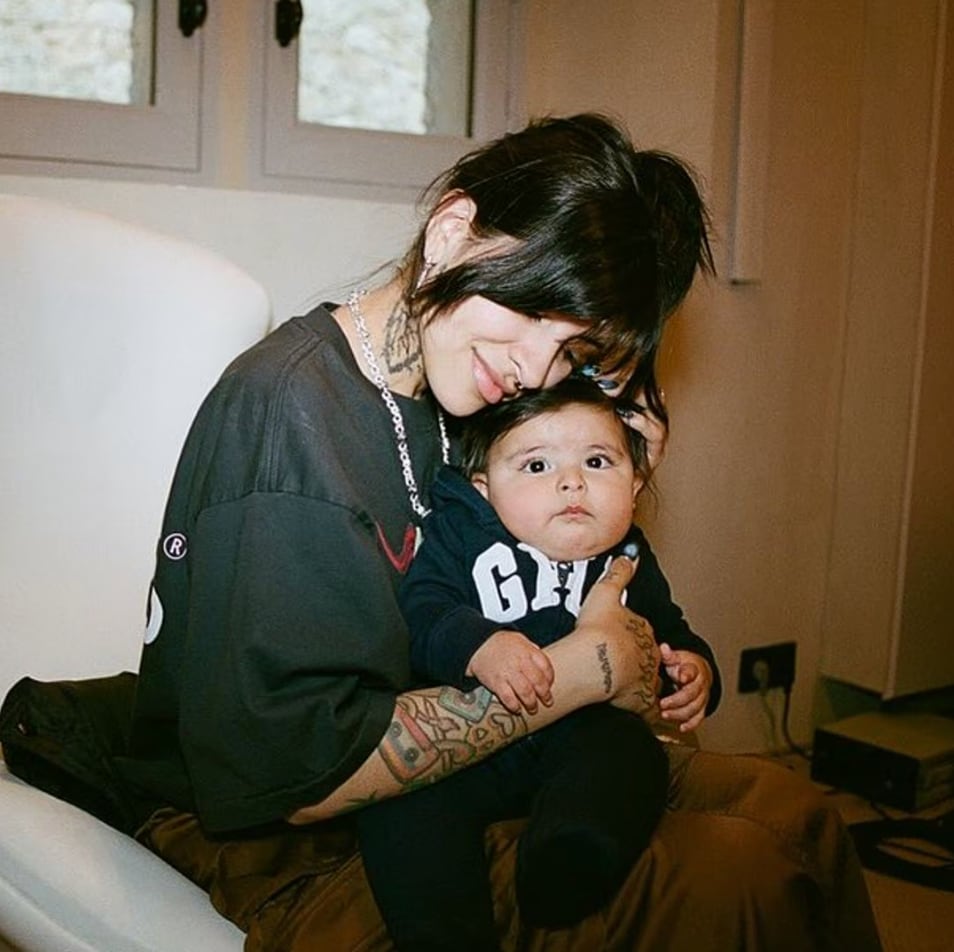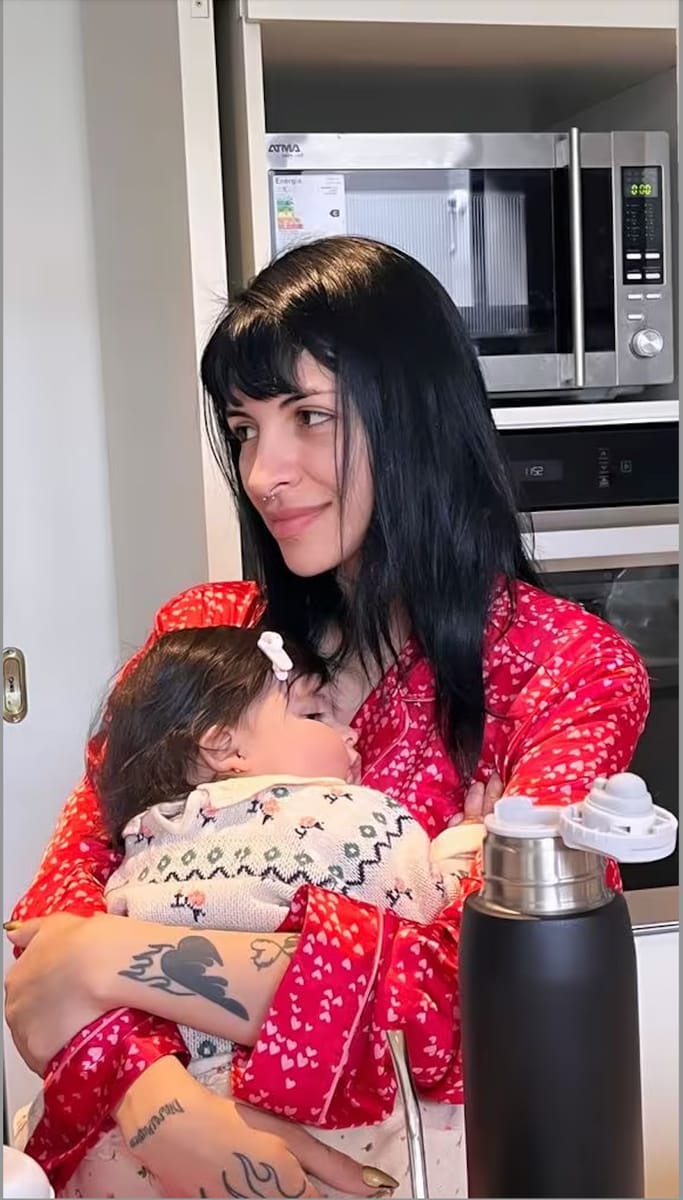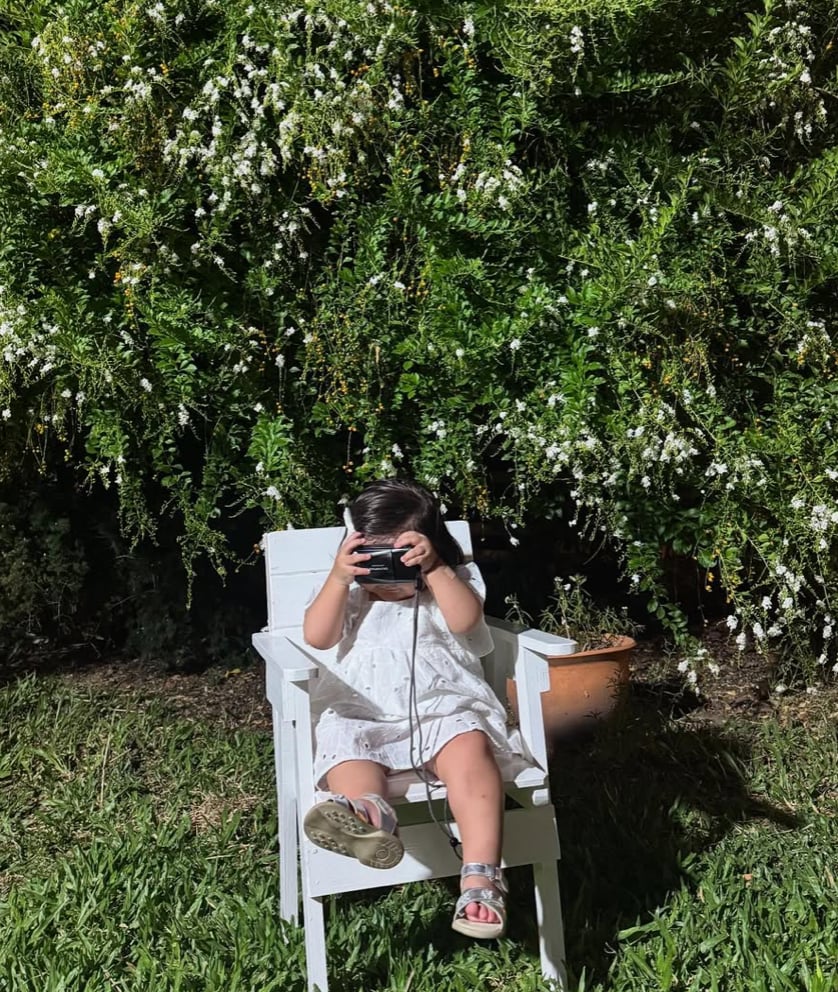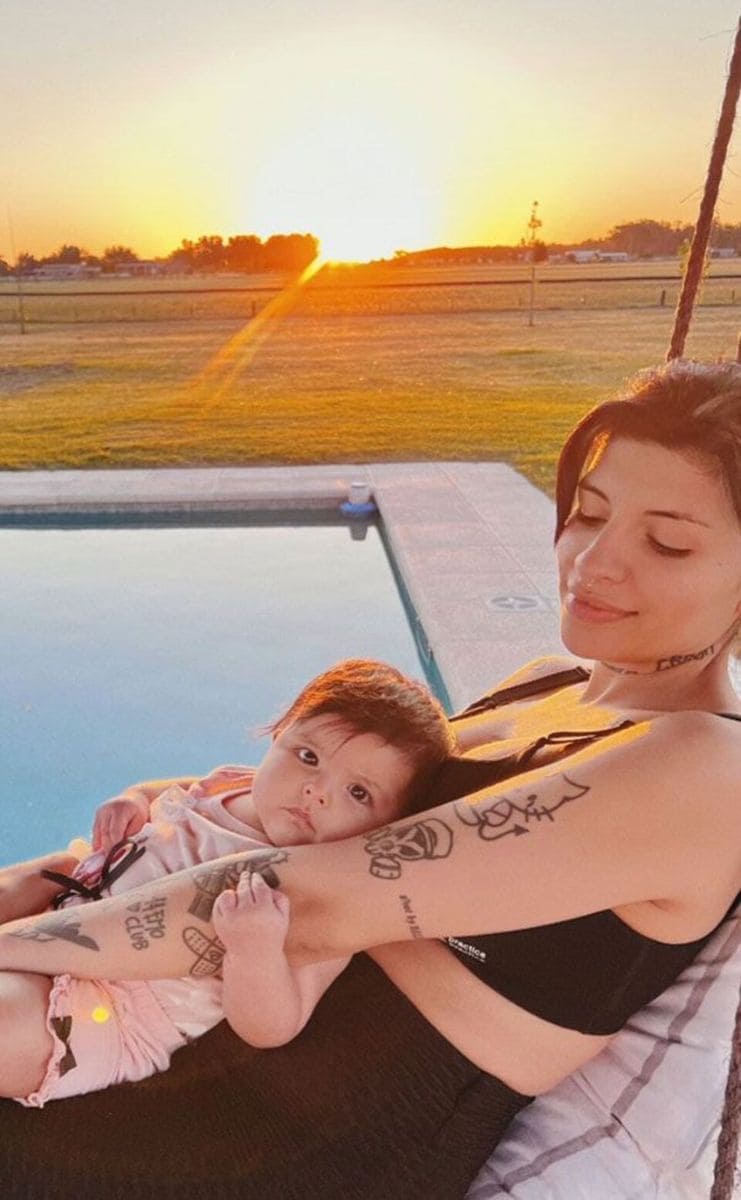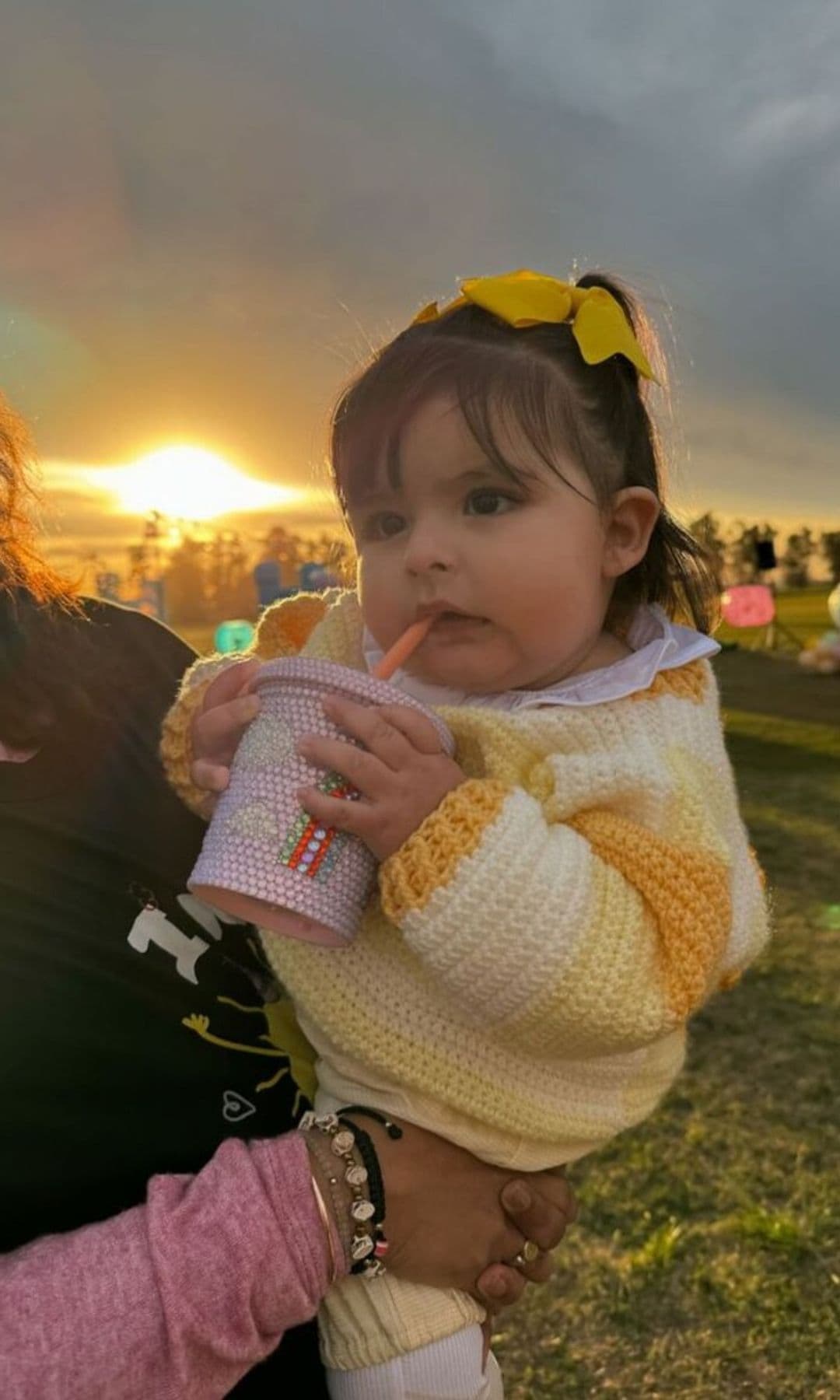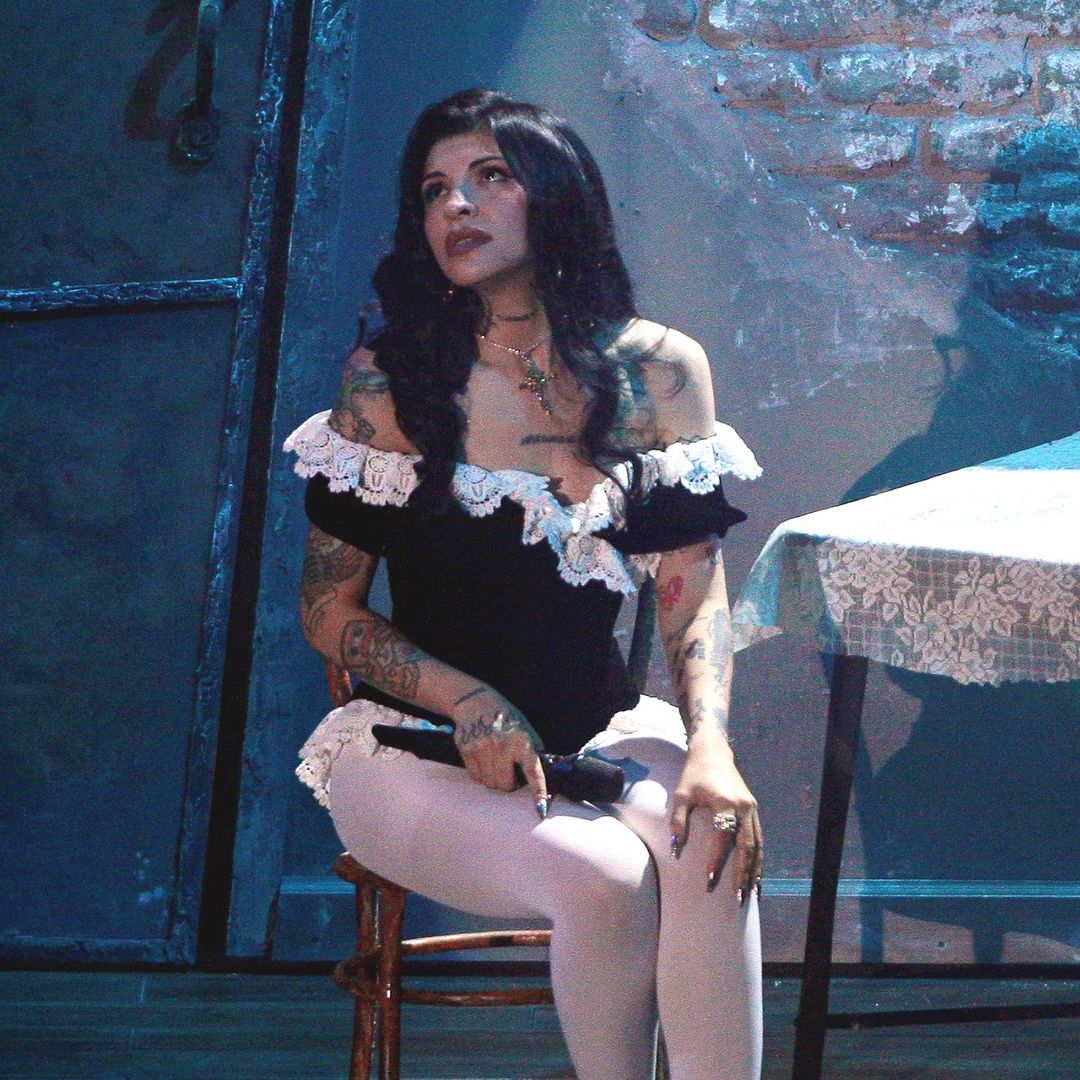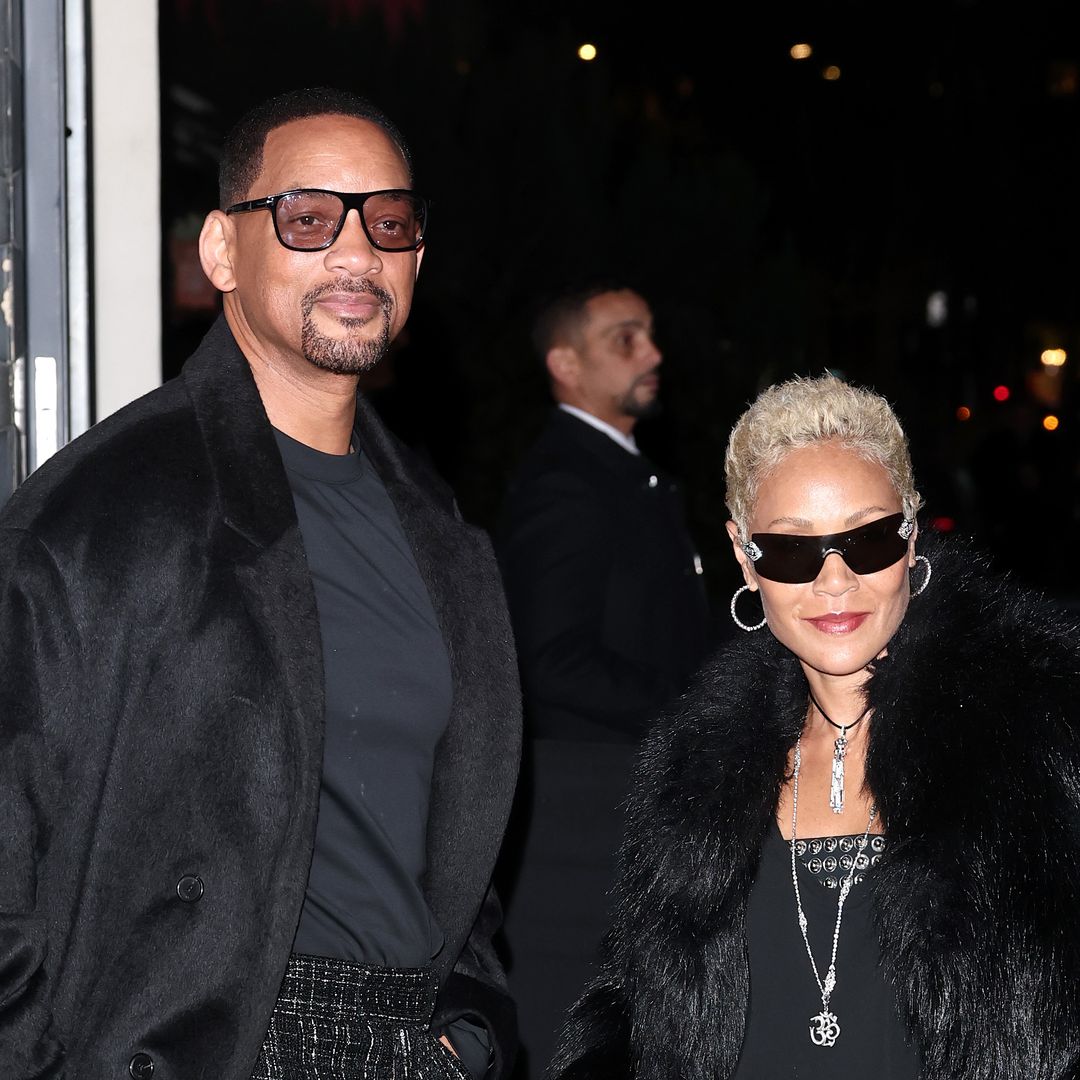Julieta Emilia Cazzuchelli, better known as Cazzu, has concerts lined up for September, and she's making it clear that she wants her daughter to travel with her. The Argentine singer recently opened up about the legal terms surrounding the parenting of her daughter Inti, whom she shares with her ex-partner, singer Christian Nodal.
While in Mexico in mid-August, Cazzu joined the podcast Se Regalan Dudas and revealed details of the tense legal conflict with Nodal, who has allegedly refused to give permission for Inti to travel with her on tour. Since Inti is a minor, she needs consent from both parents to travel internationally.
On the podcast, Cazzu recalled one of the hardest moments of her custody battle. Inti, who is days away from turning two, lives in Argentina with her, but Nodal has not granted permission for her to leave the country. During Cazzu’s recent trip to Mexico, her daughter stayed in Argentina with her grandmother.
She began by explaining how little people see of her struggles as a single mother. “You could imagine I’m at my peak, in my best moment. People stop me on the street and say beautiful things to me, I have a book that’s doing well, a record that’s doing well… but I’m a single mom.”
She described a mediation meeting: “The other day I was in a mediation with my lawyer, a female mediator, the lawyer for my daughter’s father, who is also his manager. It was just us. I hadn’t felt that bad in a long time, but that day I had this horrible feeling of thinking: ‘The world is devastating.’”
Cazzu said she asked Nodal’s lawyer for travel permission. “I said, ‘I need a travel permit to be able to take my daughter with me.’ And it’s obvious, I work in the same business he does and I need to travel, right?”
But she never received it. “It’s been more than a year, and I still don’t have that permission. It seemed clear that it was a basic need, and then the mediator, trying to be constructive, said: ‘If you don’t feel comfortable granting permission until the girl is 18, you can grant it until she’s 5.’”
But instead, Nodal’s lawyer doubled down. “He said, ‘Don’t worry, don’t worry - my client is fully aware that whenever he feels like it, he can revoke that permission.’ I still feel in my chest what I felt in that moment, and what the other two women on that call felt; we remained deathly silent."
She recalled how Nodal’s lawyer looked at her in silence, making her feel: “We have control over you and your daughter.” Cazzu admitted, “It was one of the worst moments of my life. I walked away feeling like I couldn’t breathe.”
After that meeting, she still had to focus on her tour. “I looked around at all the people waiting for me to meet with them about my show, my tour, my dream… Sixteen years of working and pushing forward. And I said, I have the privilege of not going to court because I can take care of my daughter. I can go knock on a judge’s door and say, ‘Sir, can you give me permission to take my daughter out of the country? You know I need it. I have proof, I have tickets, I have explanations… I swear I’m not going to steal anyone.’”
Even with temporary court authorization, the process left her humiliated. “So I arrive at the airport with this partial permit from a judge, and the immigration officer looks at me and says: ‘Why doesn’t her father agree with her traveling?’ And in that moment, I’m a criminal. In that moment, ‘La Jefa’ doesn’t exist, Cazzu doesn’t exist, the person fans ask for photos and autographs doesn’t exist. I’m just a number—but a number who still has to provide for her daughter.”
The experience made her see how deeply rooted misogyny is in the judicial system, and how often the law works against women in situations like hers. “I’m still just an ant in front of the monster of misogyny, of patriarchy, and now I’m living it in a different way because it involves one of the most important things you can have: the life of a child,” she said.
“I choose not to fight this battle. I give up before even trying—for me, for my dreams, because I want to put all my energy into my career, all my energy into what I do. I can afford lawyers to request what needs to be requested, but like I said, the world is devastating—especially for those who don’t have the privileges that we do," Cazzu continued.
